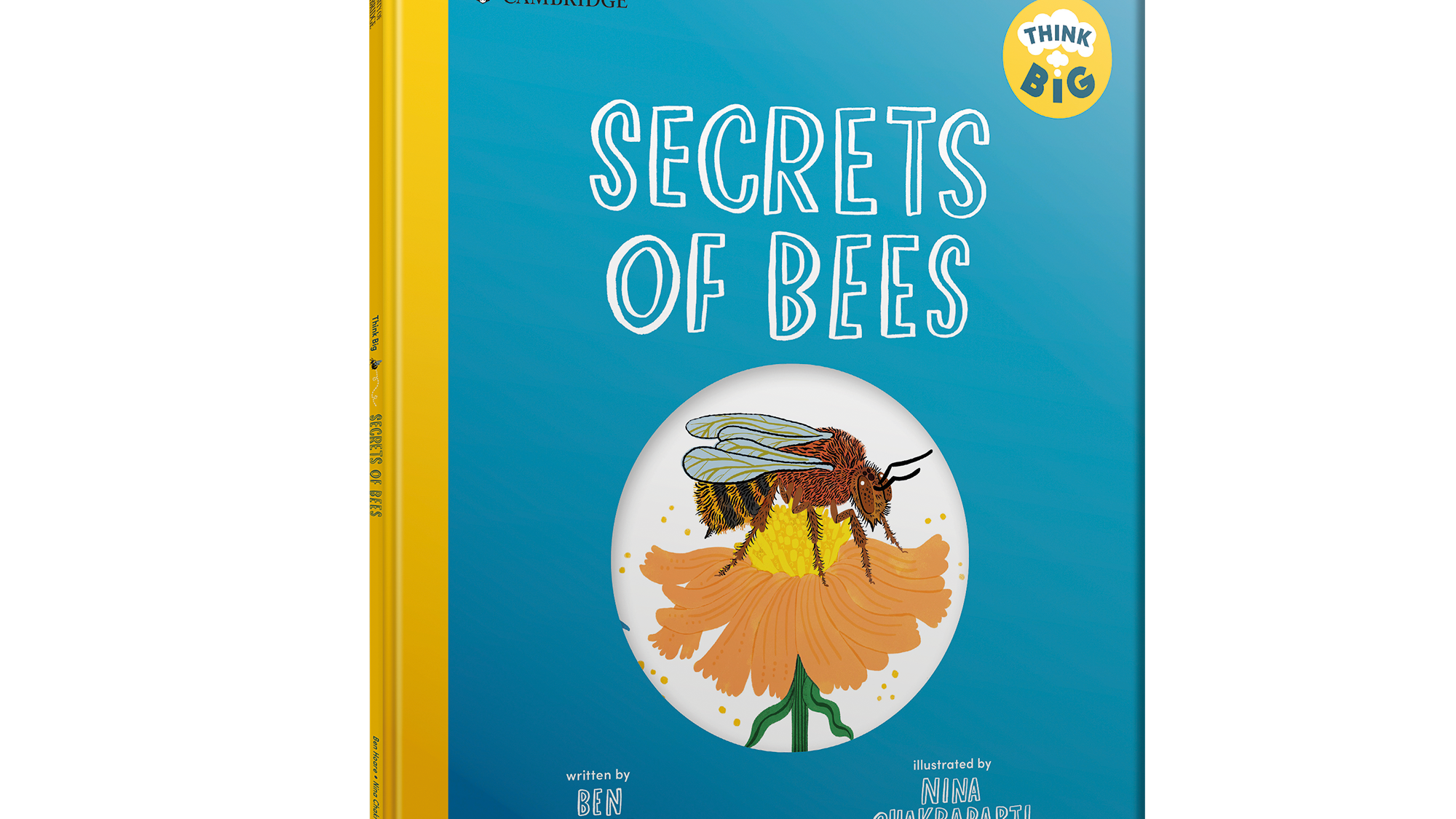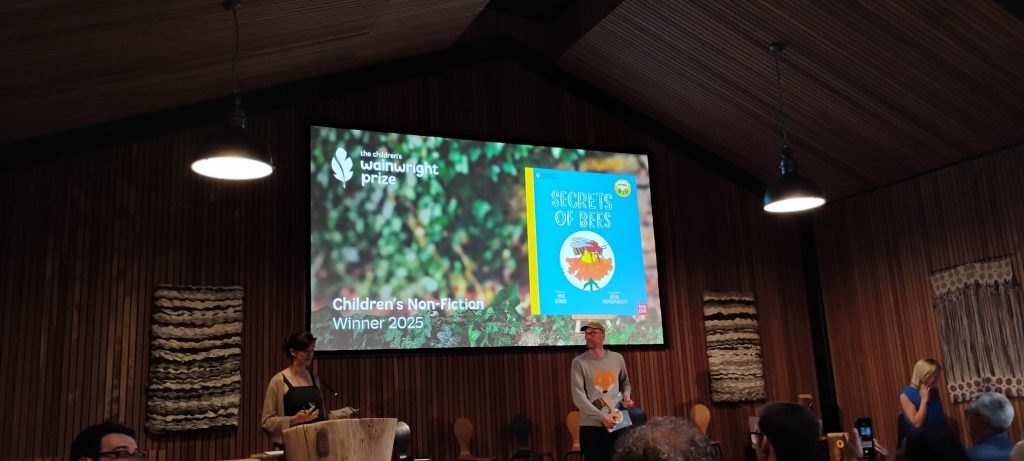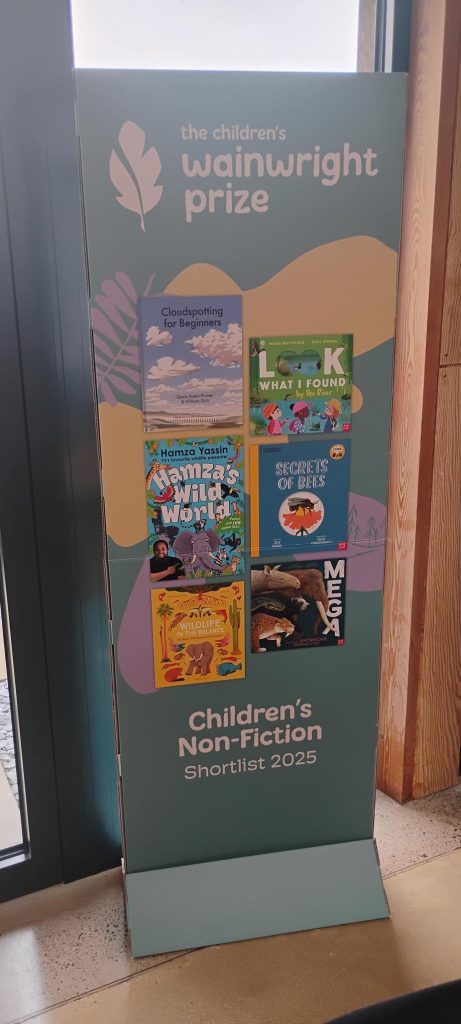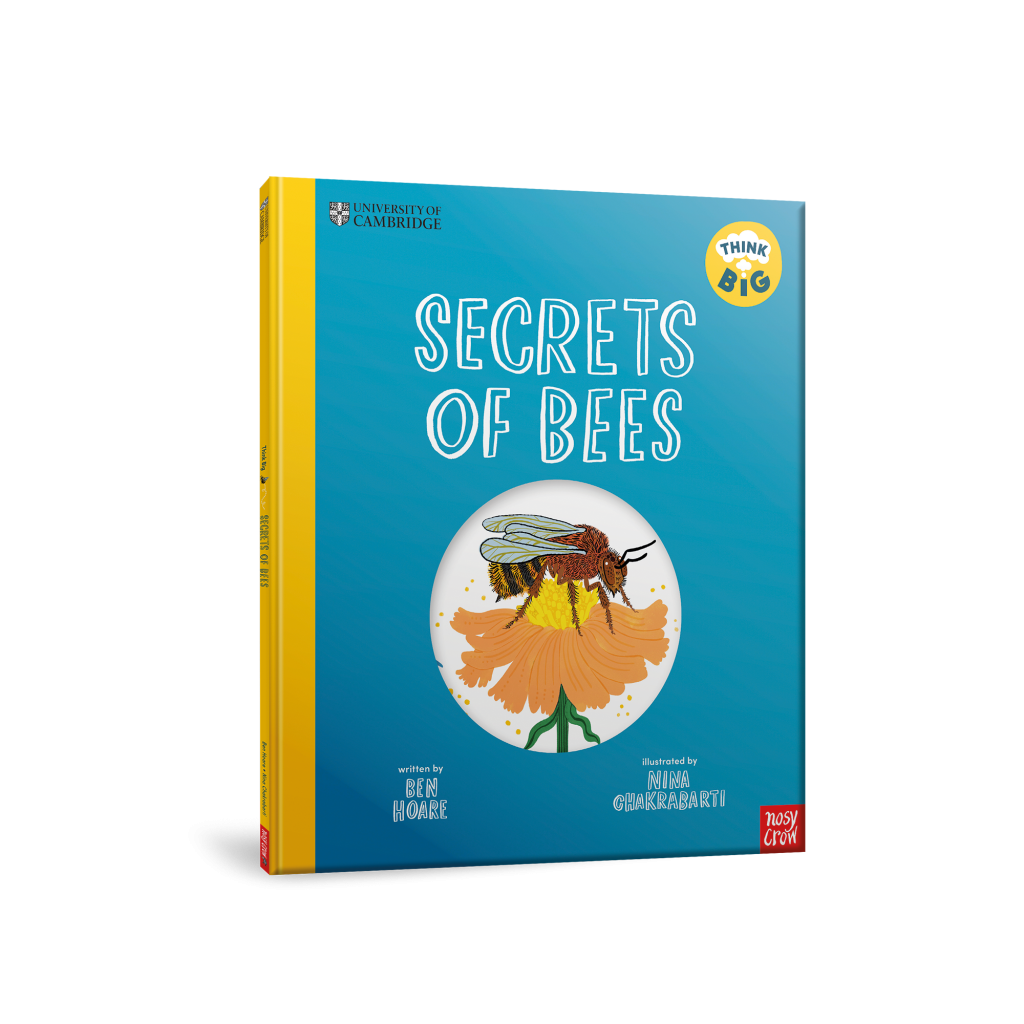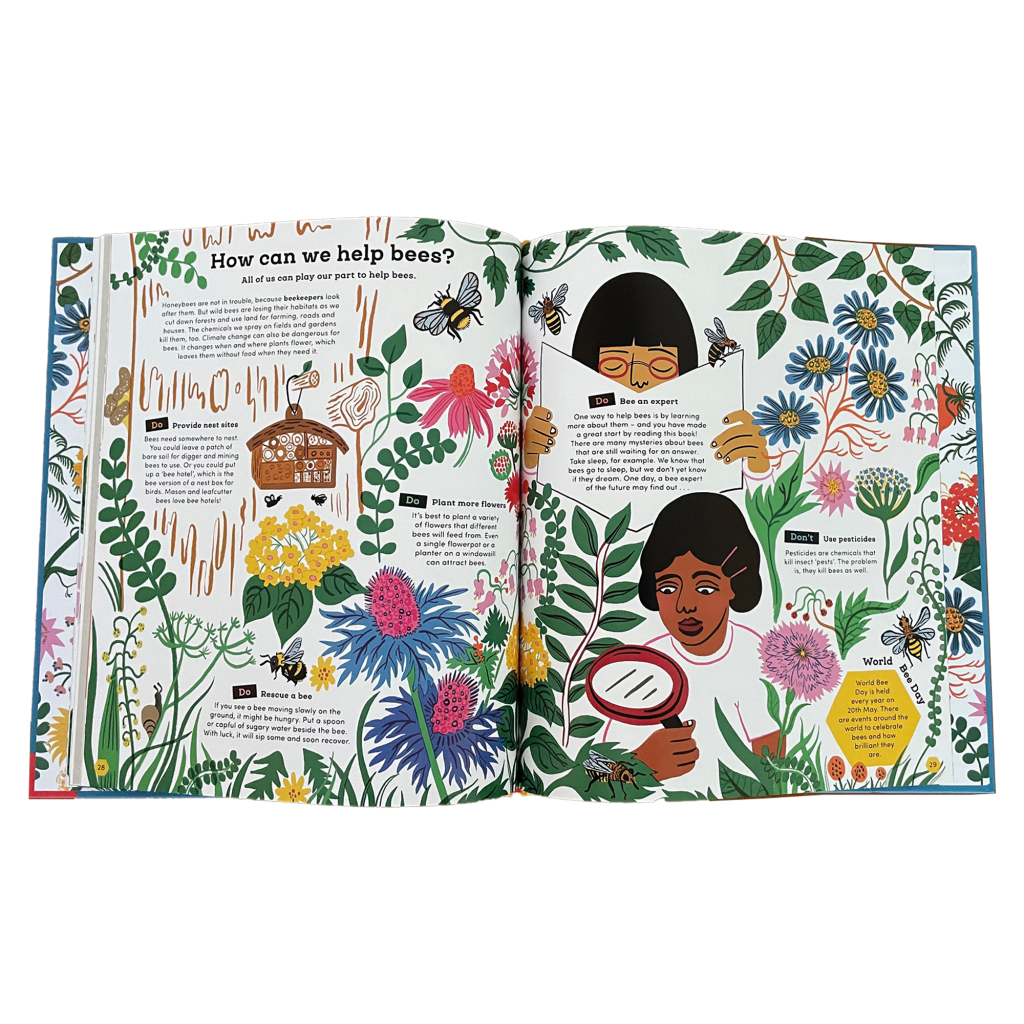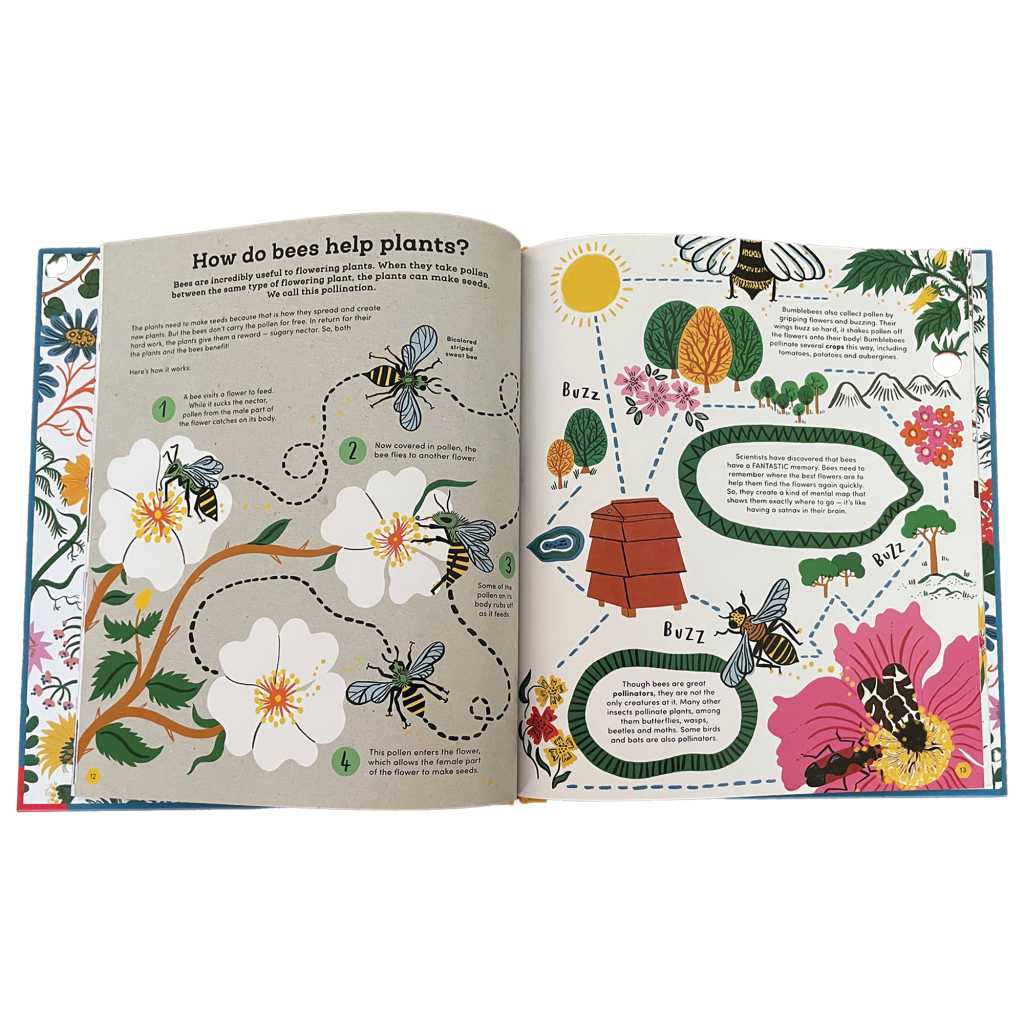CUBG’s collaboration brings success as Secrets of Bees wins a leading literary award.
Secrets of Bees, part of the University of Cambridge: Think Big series and published by Nosy Crow, has been awarded The Children’s Wainwright Prize for Non-Fiction.
Professor Beverley Glover, Director of CUBG, is ‘thrilled’ with the award after collaborating with former CUBG Learning Officer Sally Lee, writer Ben Hoare and illustrator Nina Chakrabarti to ensure the book’s botanical accuracy.
“We’re absolutely delighted that Secrets of Bees has received the Children’s Wainwright Prize. It’s been a joy to work on the book to help bring the extraordinary world of bees to life,” says Beverley.
At the Botanic Garden and through the plant research supported by our living collection, we see every day how vital pollinators are, so it’s wonderful to support a book that inspires children to marvel at these remarkable insects and understand the crucial role they play in sustaining our planet.”
Think Big: Secrets of Bees, the first in the University of Cambridge: Think Big series, aims to inspire wonder in children aged 7-10 and help them forge connections with one of nature’s smallest yet most important creatures. It details how bees pollinate plants, how they communicate and what the world would be like without bees. It is available to buy in the Botanic Garden Shop and online at Curating Cambridge.
The non-fiction category was judged by biologist and broadcaster, Ella Al-Shamahi, along with author Dr Jess French, Editor of National Geographic Kids Magazine, Tim Herbert, and Editor of The Week Junior Science+Nature, Dan Green.
The Wainwright Prize is the world’s leading literary award for nature and conservation writing, and as well as celebrating exceptional writing, also spotlights the latest thinking on environmental issues, often shaping trends and inspiring action.
Of the announcement, Alastair Giles, The Wainwright Prize Director, said: “Warmest congratulations to all our longlisted, shortlisted and winning authors and illustrators. This year’s entries demonstrate just how vital and vibrant nature writing has become – not only as a form of creative expression, but as a force for change. As environmental and social challenges grow ever more urgent, it’s inspiring to see writers of all ages and backgrounds using their voices to deepen our connection with the natural world. The Wainwright Prize continues to champion those who remind us that storytelling can be a powerful step towards awareness, action and ultimately, hope.”

